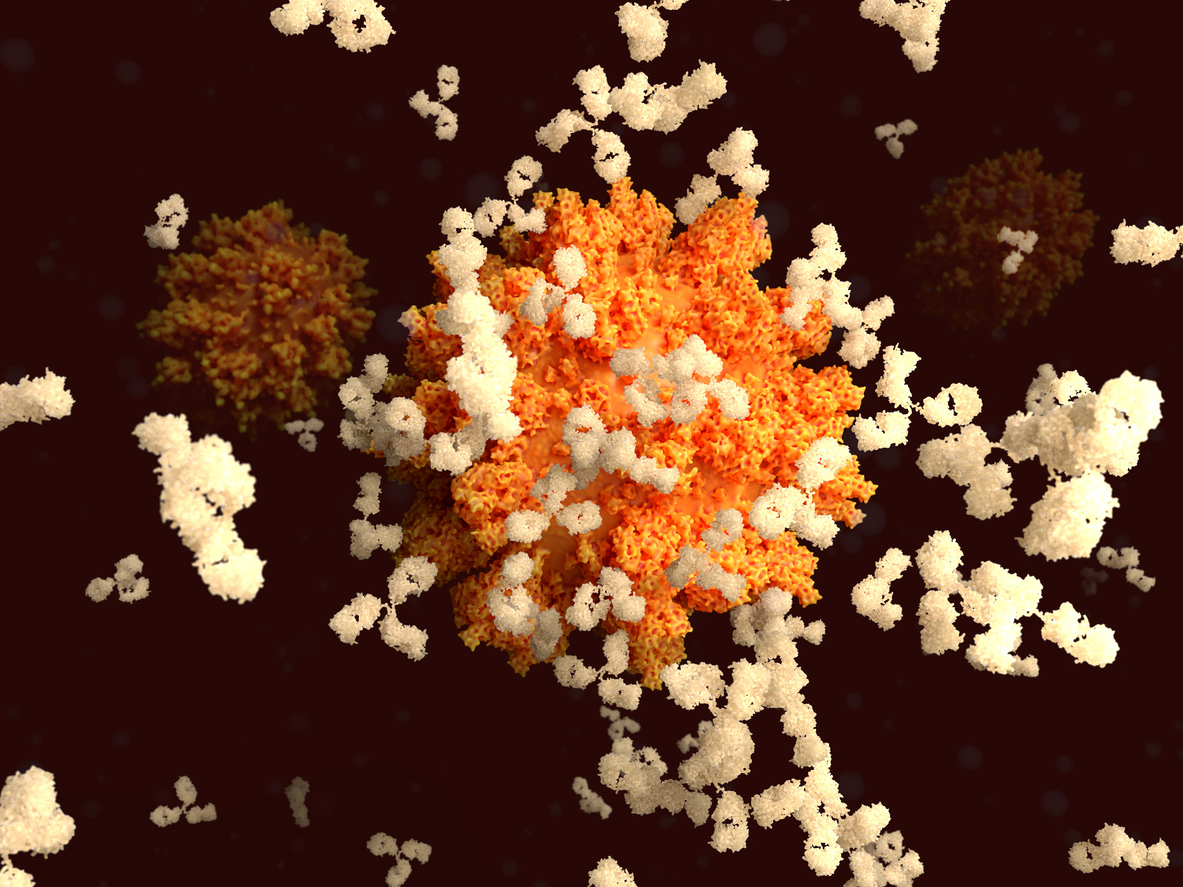A chess-playing AI network solved a 50-year-old biological dilemma, potentially revolutionizing drug development


A free daily email with the biggest news stories of the day – and the best features from TheWeek.com
You are now subscribed
Your newsletter sign-up was successful
DeepMind's AI networks have spent the past few years destroying human players in chess, Go, and classic video games. Now, they're ready to help humans out.
On Monday, DeepMind revealed its AI system AlphaFold had cracked a 50-year-old biological challenge, accurately predicting how proteins within the human body fold into 3D shapes based on their DNA sequences. Those shapes are key in determining how a protein works, and in turn pivotal to figuring out how to treat diseases that involve those proteins, The Guardian explains.
Proteins, which are sequences of amino acids within living creatures, can "bend into a mind-boggling variety of shapes," The Guardian writes. It takes about a year and costs around $120,000 to identify a single protein's shape using the most common method, known as X-ray crystallography, Fortune reports. DeepMind had AlphaFold study 170,000 protein sequences and shapes that had already been identified, and after a few weeks, AlphaFold was ready to face off against other computer-based protein structure predictors in an international competition called CASP.
The Week
Escape your echo chamber. Get the facts behind the news, plus analysis from multiple perspectives.

Sign up for The Week's Free Newsletters
From our morning news briefing to a weekly Good News Newsletter, get the best of The Week delivered directly to your inbox.
From our morning news briefing to a weekly Good News Newsletter, get the best of The Week delivered directly to your inbox.
When asked to extrapolate 100 protein shapes from their amino acid sequences, AlphaFold beat out every other program in CASP and produced results that rivaled lab methods. It predicted a protein's structure within an atom's width of accuracy in two-thirds of those proteins, and was "highly accurate" in the other third, per Fortune. It also only took a few days to identify each protein.
CASP co-founder John Moult called AlphaFold's results a "big deal," telling Nature that "in some sense the problem is solved." If scientists can more quickly figure out a protein's shape, they can find out how it affects other cells — for example, discovering how COVID-19's spike proteins latch onto host cells helped scientists develop vaccines that reduce transmission. DeepMind CEO Demis Hassabis said the company is working on how to share AlphaFold with researchers, and that some scientists have already started using it on vexing protein analyses of their own.
A free daily email with the biggest news stories of the day – and the best features from TheWeek.com
Kathryn is a graduate of Syracuse University, with degrees in magazine journalism and information technology, along with hours to earn another degree after working at SU's independent paper The Daily Orange. She's currently recovering from a horse addiction while living in New York City, and likes to share her extremely dry sense of humor on Twitter.
-
 The Olympic timekeepers keeping the Games on track
The Olympic timekeepers keeping the Games on trackUnder the Radar Swiss watchmaking giant Omega has been at the finish line of every Olympic Games for nearly 100 years
-
 Will increasing tensions with Iran boil over into war?
Will increasing tensions with Iran boil over into war?Today’s Big Question President Donald Trump has recently been threatening the country
-
 Corruption: The spy sheikh and the president
Corruption: The spy sheikh and the presidentFeature Trump is at the center of another scandal
-
 Blue Origin launches Mars probes in NASA debut
Blue Origin launches Mars probes in NASA debutSpeed Read The New Glenn rocket is carrying small twin spacecraft toward Mars as part of NASA’s Escapade mission
-
 Dinosaurs were thriving before asteroid, study finds
Dinosaurs were thriving before asteroid, study findsSpeed Read The dinosaurs would not have gone extinct if not for the asteroid
-
 SpaceX breaks Starship losing streak in 10th test
SpaceX breaks Starship losing streak in 10th testspeed read The Starship rocket's test flight was largely successful, deploying eight dummy satellites during its hour in space
-
 Rabbits with 'horns' sighted across Colorado
Rabbits with 'horns' sighted across Coloradospeed read These creatures are infected with the 'mostly harmless' Shope papilloma virus
-
 Lithium shows promise in Alzheimer's study
Lithium shows promise in Alzheimer's studySpeed Read Potential new treatments could use small amounts of the common metal
-
 Scientists discover cause of massive sea star die-off
Scientists discover cause of massive sea star die-offSpeed Read A bacteria related to cholera has been found responsible for the deaths of more than 5 billion sea stars
-
 'Thriving' ecosystem found 30,000 feet undersea
'Thriving' ecosystem found 30,000 feet underseaSpeed Read Researchers discovered communities of creatures living in frigid, pitch-black waters under high pressure
-
 New York plans first nuclear plant in 36 years
New York plans first nuclear plant in 36 yearsSpeed Read The plant, to be constructed somewhere in upstate New York, will produce enough energy to power a million homes
